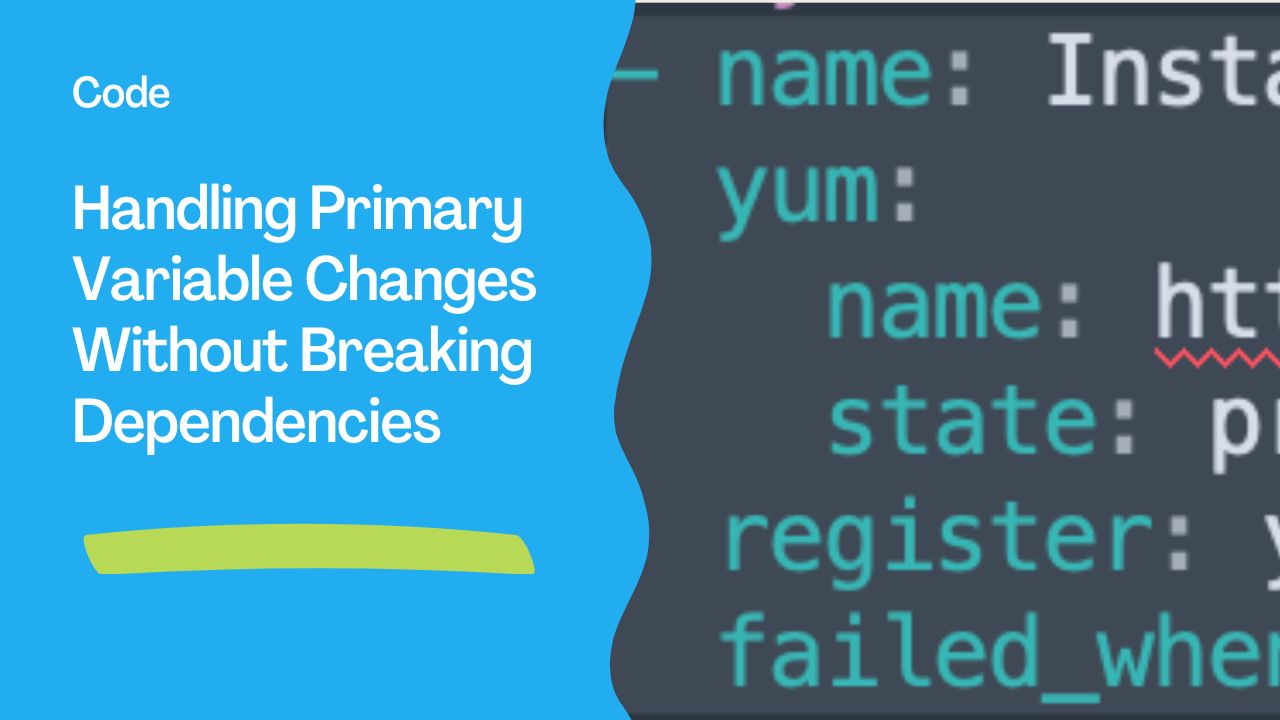Understanding the Issue: Breaking Dependencies with Variable Changes
Changing a primary variable in a configuration or script can unintentionally break dependent variables or components. Let’s dive into the problem and explore strategies to mitigate these issues.
Problem Analysis
Variable Dependency:
Iffoois the primary variable andfoo.baris derived or dependent on it, alteringfoomay invalidatefoo.barif it relies on a specific structure or value infoo.Dynamic Referencing:
Other variables or functions referencingfoo.barwithout a fallback mechanism or proper error handling may fail whenfoois modified.Scope or Mutability:
In some languages or systems, changes to a primary variable may propagate unexpectedly, impacting dependent variables globally.
Solutions
1. Default Values and Fallbacks
Ensure dependent variables like foo.bar have a default value or fallback mechanism to handle changes in foo.
vars:
foo:
bar: ${foo.default_bar | default("fallback_value")}
2. Validation
Validate changes to foo before applying them. Ensure foo maintains the correct structure or format to prevent foo.bar from breaking.
Example in Python:
if "bar" not in foo or foo["bar"] is None:
foo["bar"] = "fallback_value"
3. Isolate Dependencies
Refactor configurations so dependent variables don’t rely directly on mutable states in foo.
vars:
foo:
bar: "default_value"
dependent_var: ${foo.bar}
4. Immutable References
If supported by your system, make foo immutable and create a new variable instead of altering foo directly.
5. Error Handling
Add robust error handling to address situations where foo.bar might not exist or becomes invalid after foo is updated.
6. Debugging
Log or trace how changes to foo propagate to other variables to identify and resolve breaking points.
Example: Refactoring for Resilience
Before Change
vars:
foo:
bar: "default_value"
After Change
vars:
foo:
bar: "new_value"
Problem: If bar is removed or replaced
vars:
foo: "new_value"
# This breaks dependent variables looking for foo.bar
Refactored Solution
vars:
foo:
bar: ${foo.bar | default("fallback_value")}
By applying these strategies, you can ensure your configurations and scripts are resilient to changes in primary variables. Whether you’re working in YAML, Python, or another environment, adopting these practices will save time and prevent unexpected failures.
Let me know if you need tailored advice for specific tools or systems like Terraform, Ansible, or others!
